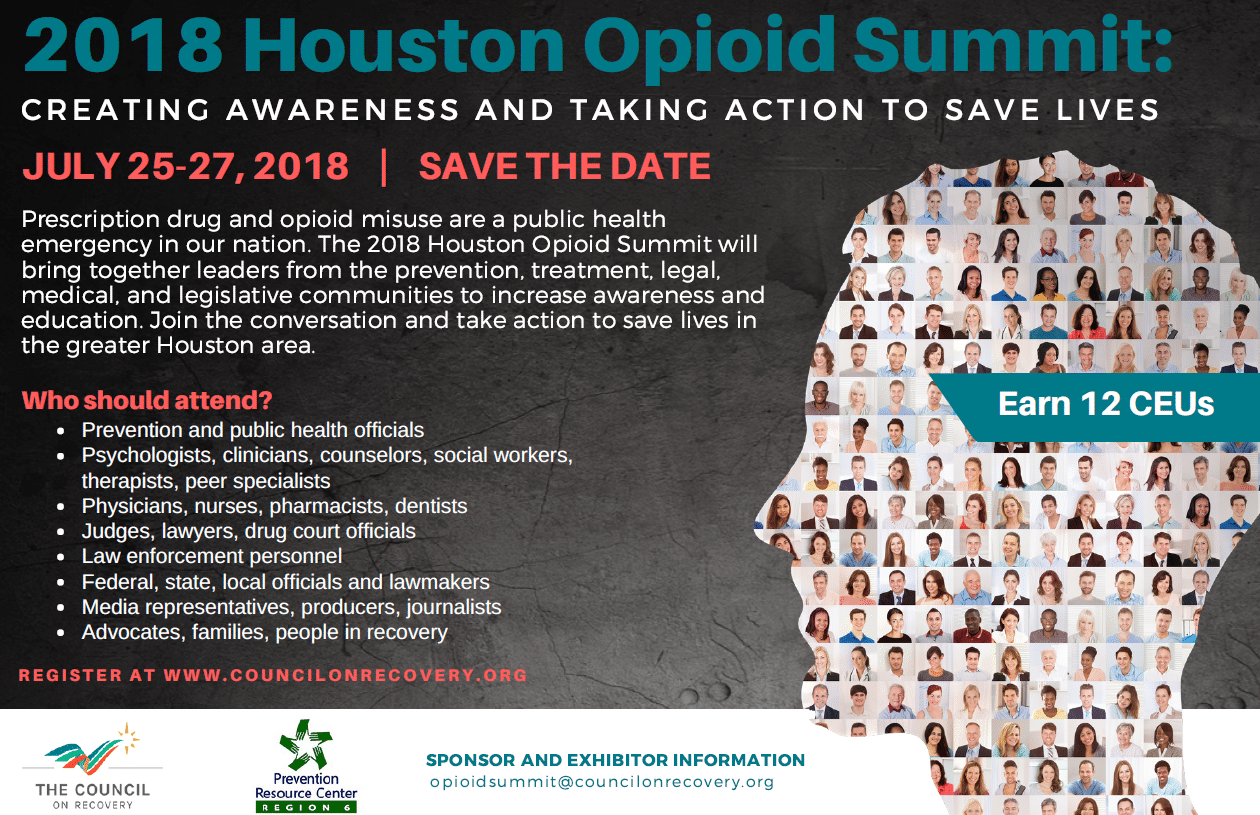 Major July 25-27 Summit to Gather Multi-Sector Experts to Confront Opioid Crisis & Forge Solutions
Major July 25-27 Summit to Gather Multi-Sector Experts to Confront Opioid Crisis & Forge Solutions
The Council on Recovery and the Prevention Resource Center, Region 6, announce the 2018 Houston Opioid Summit, July 25-27, the first summit of its kind to bring together leaders from Houston’s medical, legal, prevention, treatment, legislative, and media sectors to increase awareness of the opioid epidemic and create actionable solutions to save lives.
Taking place at The Council’s main campus at 303 Jackson Hill in Houston, the Opioid Summit will feature keynote speakers, panel discussions, roundtable dialogues, and break-out sessions across four major sectors: Medical, legal, prevention, and treatment. The Opioid Summit will dive deep into this public health emergency that claimed 42,000 lives in 2016 (according to HHS) by exploring all aspects of the issue. It will also examine the role media plays in both the problem and solutions.
The Opioid Summit kicks off Wednesday evening, July 25th, with the free screening of the new documentary – Do No Harm: The Opioid Epidemic introduced by its producer, Harry Wiland, Founder of the Media Policy Center. Thursday, July 26th features an opening keynote address on the scope of the issue, followed by breakout sessions throughout the day and a mid-afternoon keynote address focusing on advocacy. Friday, July 26th opens with a keynote address on the media’s role, followed by additional breakout sessions and roundtable dialogues. The Opioid Summit wraps up Friday afternoon with the intimate and personal perspectives of three nationally prominent figures whose lives were forever changed by opioid addiction. A detailed program for the event will be released by July 1st.
Weds., July 25, 2018, 6:00 PM – 9:00 PM – Free Screening of “Do No Harm” & Panel Discussion
Thurs., July 26, 2018, 8:00 AM –4:30 PM – 2018 Houston Opioid Summit
Fri., July 27, 2018, 8:00 AM – 4:30 PM – 2018 Houston Opioid Summit
Early-bird Registration: $50 per day (Thurs and/or Friday); After June 22nd, $75 per day (Thursday and/or Friday)
Registration includes breakfast, lunch, snacks, and refreshments.
Licensed professionals in attendance are eligible to receive up to 12 Continuing Education Units (CEUs) for this event.
Register at www.councilonrecovery.org For more information, email opioidsummit@councilonrecovery.org or call 281.200.9323.
